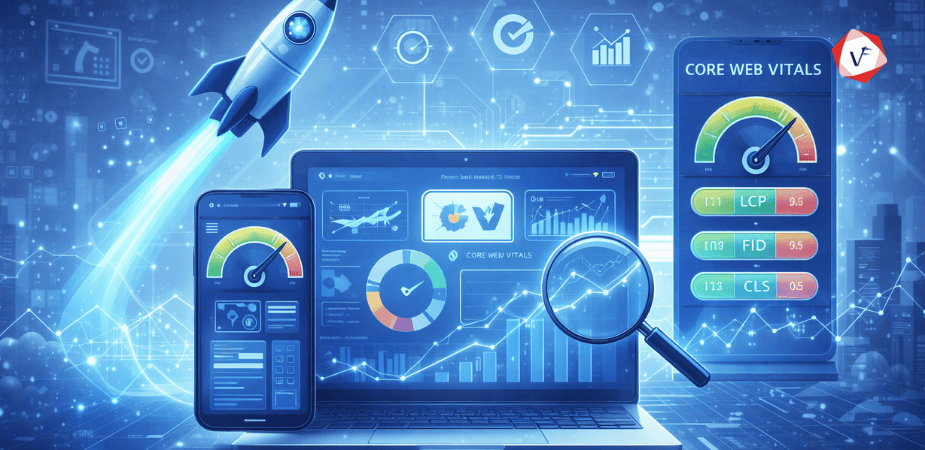
- April 11, 2025 3:43 pm
- by Kevin
Benefits of Using Raspberry Pi
- April 11, 2025 3:43 pm
- by Aruthra
The Raspberry Pi, a series of small single-board computers developed by the Raspberry Pi Foundation, has revolutionized computing education and DIY electronics projects since its launch in 2012. This article examines the various benefits of using Raspberry Pi, from its affordability and versatility to its ability to drive innovation in IoT and automation. Whether you are a beginner learning to code, a hobbyist building home automation systems, or a professional developing IoT solutions, the Raspberry Pi offers a compelling platform for a wide range of applications.
Advantages of Using Raspberry Pi
Affordability & Accessibility
One of the most significant benefits of using Raspberry Pi is its affordability. Priced as low as $35 for the basic model, it is an accessible option for students, educators, and hobbyists. This low cost democratizes computing and makes technology more accessible to a broader audience.
- Cost-Effective Learning Tool: For educational institutions, the Raspberry Pi is an invaluable tool. Schools and universities can equip classrooms with these inexpensive devices, providing students with hands-on experience in programming, electronics, and computer science without a significant financial burden. The affordability of Raspberry Pi ensures that learning to code and understand computer systems is no longer limited to those with access to expensive equipment.
- Economic Prototyping: Startups and makers can use the Raspberry Pi to prototype their ideas economically. The low cost allows for iterative development and testing without the risk of significant financial loss. This aspect is particularly beneficial for IoT startups, where the ability to rapidly prototype and iterate is crucial for success.
Versatility & Flexibility
The Raspberry Pi's versatility is another key advantage. It can be used in a wide range of applications, from simple educational projects to complex industrial automation systems.
- Broad Range of Applications: The Raspberry Pi can serve as a desktop computer, a media center, a web server, and more. Its general-purpose input/output (GPIO) pins enable it to interact with sensors, motors, and other peripherals, making it an ideal platform for robotics, home automation, and IoT projects.
- Customization & Expandability: Users can customize and expand their Raspberry Pi setups to meet specific needs. With various models and accessories available, including cameras, touchscreens, and HATs (Hardware Attached on Top), the Raspberry Pi can be tailored to fit a multitude of projects and requirements.
Community Support & Resources
A robust community supports the Raspberry Pi, providing extensive resources, tutorials, and forums for users at all levels.
- Active Community: The Raspberry Pi community is one of the most active and vibrant in the tech world. Users can find help and inspiration from a vast network of enthusiasts and professionals who share their knowledge and experiences. This community-driven support is invaluable for beginners and advanced users alike.
- Comprehensive Documentation: The Raspberry Pi Foundation provides comprehensive documentation and educational resources. From beginner guides to advanced project tutorials, users can access a wealth of information to help them get the most out of their Raspberry Pi.
- Open Source Software and Collaborative Projects: The open-source nature of the Raspberry Pi ecosystem encourages collaboration and innovation. Users can access and modify a wide range of software, contributing to a culture of shared knowledge and collective problem-solving. Projects such as the Pi-hole, an ad-blocking server, or OctoPrint, a 3D printer management tool, exemplify the collaborative spirit and practical applications that emerge from this community.
Educational Value
The educational benefits of Raspberry Pi are profound. It is an excellent tool for teaching and learning in various fields, including computer science, electronics, and engineering.
- Promoting STEM Education: The Raspberry Pi promotes STEM (Science, Technology, Engineering, and Mathematics) education by providing a hands-on, practical learning experience. Students can learn programming languages like Python and Scratch, explore hardware and software integration, and understand the principles of computing and electronics.
- Encouraging Innovation: By making technology accessible and affordable, the Raspberry Pi encourages innovation among students and hobbyists. It inspires creativity and problem-solving, empowering users to bring their ideas to life through experimentation and project-based learning.
Environmental Impact
The Raspberry Pi’s low power consumption and longevity contribute to its positive environmental impact.
- Energy Efficiency: The Raspberry Pi consumes significantly less power compared to traditional desktop computers, making it an energy-efficient option for various applications. This low power consumption is especially beneficial for always-on systems like home automation and IoT devices.
- Longevity & Sustainability: Designed to be durable and long-lasting, the Raspberry Pi reduces electronic waste. Its long lifespan and the ability to repurpose older models for different projects contribute to a more sustainable approach to technology use.
Practical Applications in IoT & Automation
The Raspberry Pi is a cornerstone in the world of IoT (Internet of Things) and automation, offering numerous practical applications.
- Home Automation: Home automation enthusiasts can use the Raspberry Pi to control lights, thermostats, security cameras, and other smart devices. With the help of software like Home Assistant or openHAB, users can create a centralized hub for managing their smart home ecosystem.
- Industrial Automation: In industrial settings, the Raspberry Pi can be used for monitoring and controlling machinery, collecting data from sensors, and automating repetitive tasks. Its reliability and low cost make it an attractive option for small to medium-sized enterprises looking to implement automation solutions without significant investment.
- Prototyping IoT Devices: For IoT developers, the Raspberry Pi serves as an excellent prototyping platform. It supports various communication protocols, such as Wi-Fi, Bluetooth, and Zigbee, enabling the development and testing of connected devices. The ability to interface with numerous sensors and peripherals makes it ideal for creating innovative IoT solutions.
Enhancing Digital Literacy
Using Raspberry Pi enhances digital literacy by providing users with the skills and knowledge needed to navigate the digital world.
- Building Technical Skills: Working with Raspberry Pi helps users develop a range of technical skills, including programming, hardware interfacing, and network configuration. These skills are highly valuable in today’s job market, where digital literacy is increasingly important.
- Understanding Computer Architecture: The Raspberry Pi provides a hands-on opportunity to learn about computer architecture and operating systems. Users can explore the inner workings of a computer, from booting up the operating system to managing system resources, fostering a deeper understanding of technology.
Fostering a Maker Culture
The Raspberry Pi plays a significant role in fostering a maker culture, where individuals are encouraged to create, innovate, and share their projects.
- DIY Projects: The Raspberry Pi community thrives on DIY projects, with countless examples of creative applications. From building retro gaming consoles to creating weather stations and garden automation systems, the possibilities are endless. This culture of making and sharing projects inspires others to embark on their own creative journeys.
- Collaborative Learning: The collaborative nature of the Raspberry Pi community promotes learning through sharing and collaboration. Makers can find inspiration, share their experiences, and seek advice from others, creating a supportive environment that nurtures innovation and learning.
Security & Privacy Benefits
Using Raspberry Pi for personal projects can offer enhanced security and privacy compared to relying on commercial solutions.
- Customizable Security Solutions: Users can configure their Raspberry Pi setups to meet their specific security needs. For example, a Raspberry Pi can be used to create a personal VPN server, providing a secure connection for remote access to home networks. The ability to customize security settings ensures that users have control over their data and privacy.
- Local Data Storage: Unlike many commercial IoT devices that rely on cloud services, Raspberry Pi projects can store data locally. This local storage reduces the risk of data breaches and provides users with more control over their information.
Cost-Effective Media Center
Transforming a Raspberry Pi into a media center is a popular application that demonstrates its versatility and affordability.
- Home Entertainment System: With software like Kodi, the Raspberry Pi can be used to build a cost-effective home entertainment system. Users can stream movies, music, and TV shows, access media libraries, and even play retro video games, all from a single, compact device.
- Streaming Services: The Raspberry Pi supports various streaming services, allowing users to watch their favorite content without needing expensive hardware. Its ability to connect to different media sources and formats makes it a versatile addition to any home entertainment setup.
Real-World Success Stories
- Environmental Monitoring: Environmental scientists and researchers utilize Raspberry Pi to monitor and analyze ecosystems. Projects like weather stations, air quality monitors, and wildlife cameras benefit from Raspberry Pi’s ability to interface with various sensors and its capability to handle data logging and processing. These projects contribute valuable data to the scientific community, aiding in the understanding and preservation of natural environments.
- Healthcare Innovations: In the healthcare sector, Raspberry Pi has been used to develop cost-effective medical devices. Examples include portable diagnostic tools, patient monitoring systems, and automated medication dispensers. These innovations are particularly impactful in low-resource settings, where affordability and accessibility are crucial.
Final Thoughts
By harnessing the power of the Raspberry Pi, individuals and organizations can drive innovation, enhance digital literacy, and contribute to a more connected and efficient world. The Raspberry Pi offers numerous benefits, from its affordability and versatility to its role in education and innovation. Its applications in IoT and automation make it a valuable tool for both hobbyists and professionals. Whether you are looking to learn to code, prototype a new product, or automate your home, the Raspberry Pi provides a powerful, flexible, and cost-effective solution. Vofox's IoT and automation services are a great option to explore further advancements and professional implementations in this dynamic field, ensuring your projects reach their full potential. Reach out to our expert team today to learn more.




.png)